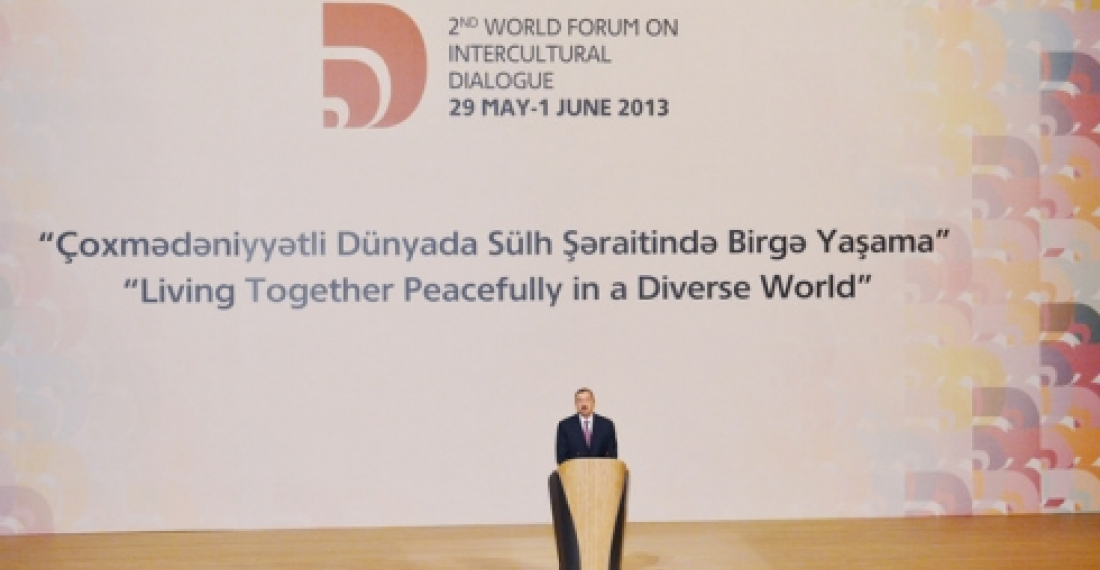The Second World Forum on Intercultural Dialogue on the subject of "Living together peacefully in a diverse world" has started at the Heydar Aliyev Center in Baku. Azerbaijani President Ilham Aliyev attended the opening ceremony and made a speech.
In his speech President Aliev noted that throughout the centuries Azerbaijan has been the homeland for many nationalities who believe in different religions: "This factor plays an important role in the successful development of Azerbaijan. We want to prevent unpleasant cases. Unfortunately, we can not achieve it. Religious and national conflicts occur in different parts of the world."
Noting that Azerbaijan has been an example of tolerance for centuries, President Ilham Aliyev said during the period of independence these positive tendencies were conserved, even expanded: "Dialogue among peoples, nations strengthens these tendencies. The countries have political and economic interests. People-to-people relations should be established in order to enhance relations among states. There is a place for every nation and people in the world. There should only be peace and cooperation. Our steps on regional relations aim at cooperation."
Noting that Azerbaijan is a part of the Muslim world, the President underlined that European influence on Azerbaijan has been felt since the 19th century.
President Aliev said that Azerbaijan plays an important role in the Organization of Islamic Cooperation, Europe's most popular song contest was held in Baku last year, the first European Olympic Games will be held in Baku in 2015. He added:
"Various contradictory views have been recently expressed regarding multiculturalism, pessimistic statements are made. Some political statements, media outlets do not serve the dialogue among civilizations, but are against it. Multiculturalism has existed in Azerbaijan for centuries. Azerbaijan is one of the addresses of multiculturalism. This tendency can be strengthened in any place of the world. There should only be political will."
Other speakers included the head of the UN Alliance of Civilizations and the High Representative of the UN Secretary General, Nassir Abdulaziz Al-Nasser, the Director General of UNESCO, Mrs. Irina Bokova, and the Director-General of ISESCO, Abdulaziz Othman Altwaijri.
At the end of the official opening ceremony, the forum participants were photographed with President Ilham Aliyev.
Then, a flash mob was held in the lobby of the Heydar Aliyev Center.
source: commonspace.eu with APA
photo: President Aliev opening the Intercultural Forum in Baku on 30 May 2013. (picture c ourtesy of the Press Service of the Azerbaijani President.)







